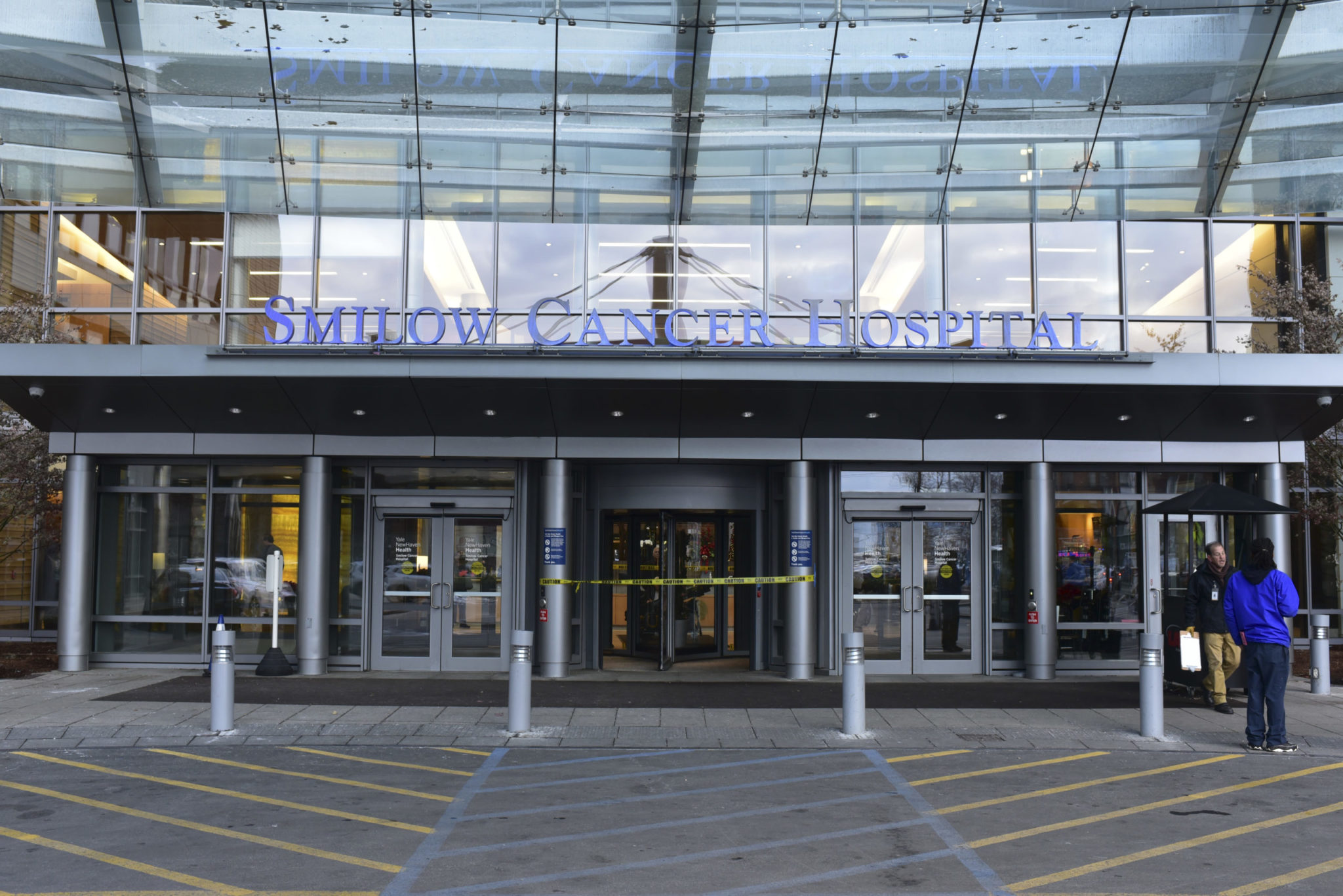Study at Yale Cancer Center receives national recognition
The Annual Meeting of the American Society of Clinical Oncology Gastrointestinal Symposium presented a new Yale study on colorectal cancer. v

Ryan Chiao, Senior Photographer
A study from the Yale Cancer Center provides new insight into the molecular mechanisms and effective treatments of colorectal cancer.
The study, which was presented at the 2022 Annual Meeting of the American Society of Clinical Oncology Gastrointestinal Symposium on Jan. 20, investigates a potential biomarker for colorectal cancer. Janie Zhang, a clinical fellow in medical oncology at the Yale Cancer Center and lead author, elucidates the DNA-repair protein MGMT as a potential biomarker for colorectal cancer.
“MGMT deficiency in colorectal cancer is actually not a very well characterized feature,” Zhang wrote in an email to the News. “When we were reviewing the literature, it was very surprising that up to 40% of colorectal cancers have MGMT promoter hypermethylation, which theoretically leads to MGMT downregulation.”
The MGMT protein, or otherwise known as O6-methylguanine DNA methyltransferase, is important in the repair of DNA damage. When studying the molecular bio-environment of colorectal cancer, the researchers of the study showed that MGMT was downregulated in about 20 percent of colorectal cancers.
Zhang added that her group is one of the first to use MGMT protein deficiency to try to treat CRC, and that this deficiency is not well-known to oncologists. Her clinical research mentor, Michael Cecchini, developed the initial clinical trial concepts to target the MGMT deficient colorectal cancers, and she combined her research in his lab with the lab of the senior author of this paper, Kurt Schalper.
“It was surprising to learn that CRC tumors on average had lower MGMT expression compared to non-tumor colon tissue from the same individual, and further metastatic tumors had lower MGMT on average than the primary CRC tumors,” Zhang wrote in an email to the News.
The study also found that the downregulation of MGMT is associated with increased adaptive anti-tumor immune responses — contributing to higher survival rates and mismatch repair deficiency. However, it is surprising that mismatch repair, which repairs repetitive and mutation-causing DNA sequences, was deficient in these higher survival cases, as repair of DNA sequences is integral for survival.
These results provide a foundation for further investigation of MGMT as a biomarker for CRC. Zhang and her collaborators hypothesize that MGMT-deficient CRCs have more immune cell infiltration, which would open doors for immunotherapy as a viable treatment for MGMT-deficient tumors. The research team plans on using immunohistochemistry or quantitative immunofluorescence to measure protein expression for further evidence and to advance drug clinical trial concepts in MGMT-deficient CRC.
Zhang was declared a recipient of the 2022 ASCO Foundation Conquer Cancer Merit Award for her work as a first author on an abstract presented at the Symposium. She said she is highly appreciative of this recognition and hopes to inspire future Yale Hematology and Oncology fellows to submit their research to these national symposiums.







